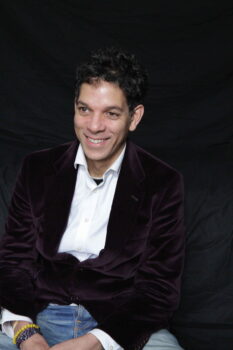This session was kindly sponsored by Web Creator Suite and Teneo Translations
THIS SESSION TOOK PLACE IN DECEMBER 2020. A SHORT SUMMARY OF IT IS HERE.
IF YOU WOULD LIKE TO PURCHASE THE FULL RECORDING OF THE SESSION (£10), CONTACT LUCIE ON MANAGER@THEICG.CO.UK
Chris Arning of Creative Semiotics Ltd and Asif Noorani of Epiphany Productions, will take ICG members through a session to encourage better awareness and empathy when dealing with issues around racism in their work and lives. Chris and Asif are communication professionals who come with a unique background – effectively they are both inside and outside of mainstream white British culture which means that they won’t duck the issues but will come at it with a nuance and sensitivity that transcends the unhelpfully polarised nature of mainstream media discourse.
More tangibly, the uniqueness of the session will the fact they will weave together and share their own experiences, and then ground these in a specialist knowledge of Semiotics and Behavioural Economics, finally opening up the discussion for participants’ own experiences and thoughts.
The session will not just be educational but should lead to commercial benefits that include:
- Better, less biased overall decision making by overcoming Comfort and Delusion
- Encourage awareness across all aspects of business (clients, colleagues, respondents)
- Higher value derived from more collaborative, diverse projects and organisations.
- Ensure more inclusive communication that caters to and attracts more diversity
- Can lead to the ICG publishing a diversity policy that shows its commitment to this.
Our speakers will be setting out two hypotheses about how racist thinking becomes perpetuated in well-meaning people, each rooted in an area of expertise. The Comfort Hypothesis, rooted in behavioural economics and The Delusion Hypothesis rooted in semiotics. What you’re getting in this session is the distillation of combined 40 years work in each of these areas. The speakers also bring their background and lived experience not only as British People of Colour, but as private school educated insight professionals, and self-employed consultants. Their methodology and approach will be challenging while constructive (not accusatory), conceptual but personal, and above all human, since no panaceas exist for this.
This will be more than just a webinar to raise awareness, awareness is higher than it has ever been. Though there are no easy fixes though we will learn about immediate steps we can take to identify, acknowledge and overcome the empathy gap, address it and start to nudge behaviours.
Above all our speakers look forward to sharing knowledge but also learning from your experiences in and around this still taboo societal issue.
Chris Arning

Chris the son of a Caribbean born mother and Anglo-Irish-German father born in Manchester. Chris is Brit-ish and grew up in London politically black but was raised culturally white, which was confusing and which if he’d been born in another country might have led to the Presidency. In the UK he has had to settle for being a ‘poor man’s Richard Ayoade! Chris writes poetry, does stand-up comedy, runs Creative Semiotics, teaches Contextual Studies and is a member of #HipHopEd. He has conducted semiotic studies on cultural identity for the BBC including for 1Xtra. He recently reviewed #BlackOutTuesday responses for trends house Canvas 8 and has been writing and blogging on race and representation since the #BlackLivesMatter movement.
Asif Noorani

Asif Noorani is the son of immigrant Pakistani Muslim parents. Growing up in Manchester, he managed to disappoint everyone by not becoming a doctor. His lived experience of the second-generation culture clash, fed an appetite to embrace the unknown, find patterns of meaning and share stories through film. Asif heads up Epiphany Productions where as a behavioural economist and storyteller he has worked with organisations including NHS, BBC, Home Office, Arts Council, and the Digital Democracy Commission to explore and tackle diversity and inclusion challenges. The burning question in all his work right now is whether after the pandemic and George Floyd’s killing, we will make good on our good intentions?
